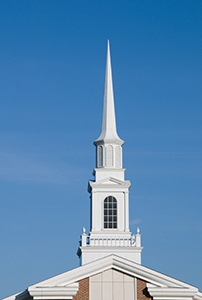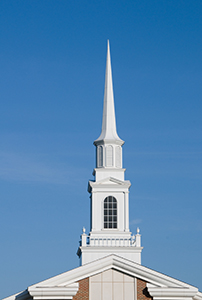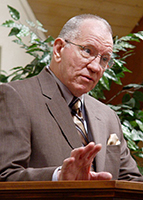Pastor Piñero and Pastor Martinez have asked me to bring four messages on the subject of the worship day. In the Old Testament it was called the “Sabbath.” We often call it the “Lord’s Day” from a New Testament perspective. That’s the subject I am going to address in these four meetings. Tonight we are going to look at it from the very beginning, the Creational Sabbath. So we go all the way back to Genesis chapter 2. And that’s where I would want you to turn in your Bibles please—Genesis chapter 2, beginning at verse 1:
Thus the heavens and the earth, and all the host of them, were finished. And on the seventh day God ended His work which He had done, and He rested on the seventh day from all His work which He had done. Then God blessed the seventh day and sanctified it, because in it He rested from all His work which God had created and made.
A few years ago I stood at the foot of Mt. Rushmore, one of the most memorable-historical sites in the United States of America. And as you probably know, carved into that massive granite mountain are the faces of four different presidents: George Washington, Thomas Jefferson, Theodore Roosevelt, and Abraham Lincoln. And it took approximately fourteen years before that project was finished. Now, apparently from time to time they have to power wash and clean the faces of those four presidents. If not, a significant disfiguration can result from the smog and the pollutants in the air. And I’m sure most Americans—I’m a Canadian by the way—would agree that that’s a very important monument to preserve. But now what would you think if someone came along and began to use chisels and hammers and removed the distinctive facial features of those four presidents? They decided to reshape their noses, their eyes and their chins, and so much so that you really couldn’t tell the difference between George Washington and Abraham Lincoln, or Jefferson (he looked very much like Roosevelt when they were finished). I’m sure that would bother you. I’m sure the American public would be in an uproar. People would be incensed. It would be viewed as vandalism. And in all likelihood those responsible for that would be put behind bars. Nobody has a right to deface or to radically change the distinctive features of your former presidents. How dare they? How could they? Well something very similar is happening today in churches across the land.
The face of worship is changing. We are losing the distinctive elements of worship.






